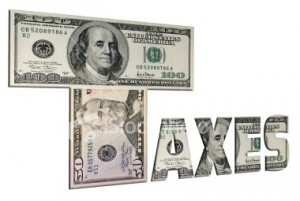House May Consider Estate Tax in April

NB: This article was published on March 29, 2010 and contains information that may be outdated. For current information regarding the estate tax, read: Estate Tax Certainty…For Now.
According to a recent article in Bloomberg Business Week, the House Ways and Means Committee will begin work in April to retroactively revive last year’s estate tax, which exposed estates worth more than $3.5 million to a tax rate of up to 45 percent.
That’s good news because if Congress does nothing, the estate tax will return with a vengeance on January 1, exposing estates worth over $1 million to a tax rate of up to 55 percent.
Of interest was a suggestion by Sander Levin, Chairman of the House Ways and Means Committee that:
[o]ne possibility being considered…would let heirs choose to pay the capital gains tax that replaced the estate levy if that is more beneficial.
I’ll keep you updated with further developments.


Comments
tvann
March 31, 2010 at 10:49am
If I died within the next couple of months would my children have to pay estate tax on my farm worth around 2 million
Rania Combs
March 31, 2010 at 9:33pm
The estate tax was temporarily repealed on January 1. But with the temporary repeal of the estate tax came expiration of date-of-death valuations.
Normally, when assets are sold, capital gains taxes accrue on the difference between the sales proceeds and the cost basis. Before January 1, 2010, the cost basis was “stepped-up” to the fair market value on the deceased person’s date of death, and applied to an unlimited amount of assets. So when beneficiaries sold an inherited asset, they were not required to pay capital gains taxes on any appreciation that occurred before the date of death.
But with the temporary repeal of the estate tax, this changed. In 2010, the cost basis of property acquired by a beneficiary is equal to the lesser of the deceased person’s basis, or the property’s fair market value on the date of death.
Each estate can exempt $1.3 million of appreciation ($4.3 million for a surviving spouse) from this carry-over basis rule. But beneficiaries are required to pay capital gains taxes on all other appreciated assets.